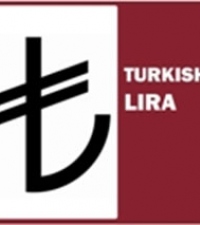Taxes in Turkey

As with most countries, the tax system in Turkey is complex and bureaucratic and as with most countries, people try to avoid paying tax as much as possible. The Turkish black market is extensive, particularly in the tourist and building sectors where labour is often casual and payments are cash in hand. This explains why the Turkish Treasury relies so heavily on relatively high indirect taxation like VAT to fill the State purse. Having said this, the Authorities take a dim view of those who deliberately flout the law and penalties can be stiff. It is your responsibility to know your tax liability and to pay your dues. Turkey has more taxes than you can shake a stick at but laid out below are the main areas that most people will be troubled by.
Income Tax
Turkish income taxes are progressive, which means the higher your income, the higher the tax rate at which you will pay.
|
Income (Turkish Lira) |
Rate (%) |
|---|---|
|
Up to 10,000 |
15 |
|
10,011 to 25,000 |
20 |
|
25,001 to 58,000 |
27 |
|
58,001 and over |
35 |
As at 2012
Taxation in Turkey is administered by the Ministry of Finance and full regulations, in English, can be found at the G.I.B website.
Tax Status
The taxation of personal income is related to residency status. As a rule of thumb, if you are a Turkish resident, full tax liability applies. Otherwise, limited tax liability applies.
Full Taxpayers
Full taxpayers are residents of Turkey who meet any one of the following conditions:
- Their home or principal residence is in Turkey (home is considered to be where his/her family lives)
- Their usual residence is in Turkey (being in Turkey for more than 183 days in any tax year will usually qualify)
- Their principal place of professional activity or employment is in Turkey.
- Their centre of economic interest is in Turkey.
As a full tax payer, you are liable to pay tax on your worldwide income, though income received from overseas may be covered under a double taxation treaty which means you will not be expected to pay tax twice. Turkey has negotiated tax treaties with over 70 countries around the world:
Albania, Algeria, Austria, Azerbaijan, Bahrain, Belarus, Bangladesh, Belgium, Bosnia-Herzegovina, Bulgaria, Czech Republic, Croatia, China, Denmark, Egypt, Estonia, Ethiopia, Finland, France, Germany, Greece, Hungary, India, Indonesia, Iran, Israel, Italy, Japan, Jordan, Kazakhstan, Kyrgyzstan, Korea, Kuwait, Latvia, Lebanon, Lithuania, Luxemburg, Macedonia, Malaysia, Moldova, Mongolia, Montenegro, Morocco, Netherlands, Norway, Pakistan, Poland, Portugal, Qatar, Romania, Russia, Saudi Arabia, Serbia,
Singapore, Slovakia, Slovenia, South Africa, South Korea, Spain, Sudan, Sweden, Syria, Turkish Republic of Northern Cyprus, Tajikistan, Thailand, Tunisia, Turkmenistan, Ukraine, United Arab Emirates, UK, USA, Uzbekistan.
Limited Taxpayers
Limited taxpayers (generally non-Turkish residents) who do not meet the above conditions are only liable for taxes on the income they earn in Turkey itself.
Property Taxes
During the last ten years, an increasing number of non-Turks have taken the plunge and purchased a property in Turkey to rent out. The Turkish Government has encouraged inward investment and, to some extent, the Byzantine ownership laws have been relaxed and simplified. There are various taxes relating to the buying, selling and renting process. Do not be fooled by speculative builders or dodgy estate agents who will say anything to get a sale.
Purchase Tax
Both the buyer and seller are liable to pay 1.5% of the purchase price. Once again, unscrupulous estate agents may tell you that you are responsible for paying the entire 3%. Also, it not uncommon for the price declared for tax purposes to be lower than the actual price paid as a way to lessen the tax burden. This is best avoided.
Rental Income
Always get up-to-date advice on your own particular tax obligations, but as a general rule, you have two options. The first is to rent out your property on a ‘company’ basis and pay a flat annual withholding tax of 20%.The second option is to pay tax at the general income tax rates (see above). It is possible to offset expenses directly related to the renting of your property.
Property Tax
An annual Property Tax of between 0.1% and 0.3% is payable on land and buildings. The tax is collected by local municipalities and the rate depends upon the type and taxable value of the property.
Environmental Tax
Local municipalities collect a small Environmental Tax as a contribution towards the financing of certain services such as rubbish collections. This tax is levied at fixed amounts that vary according to location.
Capital Gains
If you invest in a Turkish property and sell it within 5 years (4 years if the property was acquired before 01 January 2007) you will be liable to pay capital gains tax (kiymet artisi vergisi) in line with the general income tax rates (above). Taxable gains are calculated by deducting purchase costs (subject to inflation adjustment) from the selling price. A small amount of the capital gain is exempted from taxation. Obviously, if a property is sold for less than it was bought for, capital gains tax doesn’t apply. This is not as silly as it sounds in these recessionary times, particularly for new-builds.
Investment Income
Many expats have been attracted by the relatively high Lira interest rates offered by Turkish banks. Although savings accounts no longer provide the 20-30% they once did, rates are still very attractive compared to most other countries. Tax on investment income is taxed at source (‘withholding tax’). The 2012 tax rate for interest and dividend income is 15%. Tax rates on income from other investments (including Treasury Bonds) range from 0% to 10% depending on your residency status.
Salaries
All taxable earnings are taxed in line with the general income tax rates (above) and are dependent on your level of income. Income tax from earnings is generally withheld by the employer. It is possible for Turkish residents to claim tax reductions for insurance premiums, pension contributions and family living expenses.
Other taxes
VAT
The general VAT (Value Added Tax) in Turkey is 18.00% (as at 2012). The sales tax applies to the purchase of most goods and services, and is collected and submitted by the retailer to the Turkish Revenue Department. Tourists can obtain a refund for the VAT on their purchases by presenting the receipts at the Tax Refund Office found at most major airports before passing through passport control.
Vehicle Tax
If you own a car, motorbike or scooter, tax is payable and due in two instalments (January and July). Current tax rates can be found on motorlutasitlarvergisi.com.
Corporate Tax
A basic income tax is levied on the business profits of all businesses. The rate in 2012 is 20%.
Turkish Tax Numbers
To carry out many Turkish transactions, including residence and work visa applications, opening bank accounts and completing annual tax returns, you’ll need a Turkish tax number (Vergi Numerası). The process of obtaining one is relatively straightforward. You will need:
- Photocopies of your passport
- Proof of your address
- The full names of your parents
Go to your local Tax Office (Vergi Dairesi, usually part of the Maliye - Finance Office) and ask for the Civil Test Service (Sivil Yoklama Servisi). A clerk will ask you to sign a dilekçe (petition) which is a brief note (written in Turkish) asking a government employee to assist you. Sign the dilekçe, get it signed by the Tax Manager´s Assistant (Vergi Müdür Yardımcısı), hand over your paperwork and you will be issued with a small business card - your new tax number.
Remember, tax regulations and rates change on regular basis. Check for the most up-to-date regulations on the G.I.B. website.
By Jack Scott, author of Perking the Pansies, Jack and Liam move to Turkey, a bitter-sweet tragi-comedy recalling the first year of a gay couple in a Muslim land.
- My Life Abroad -
A selection of expat stories

"A fun compulsive read!"
J. Matcham, Amazon
"I strongly advise people ready to live abroad to read this book!"
Patrice, Amazon

 Banks and Banking in Turkey
Banks and Banking in Turkey How exchange rates can affect how you pay for a property overseas
How exchange rates can affect how you pay for a property overseas What are the Benefits of using a Broker to Manage Regular Overseas Payments?
What are the Benefits of using a Broker to Manage Regular Overseas Payments? Fexco payment solutions
Fexco payment solutions Highlights of Istanbul
Highlights of Istanbul